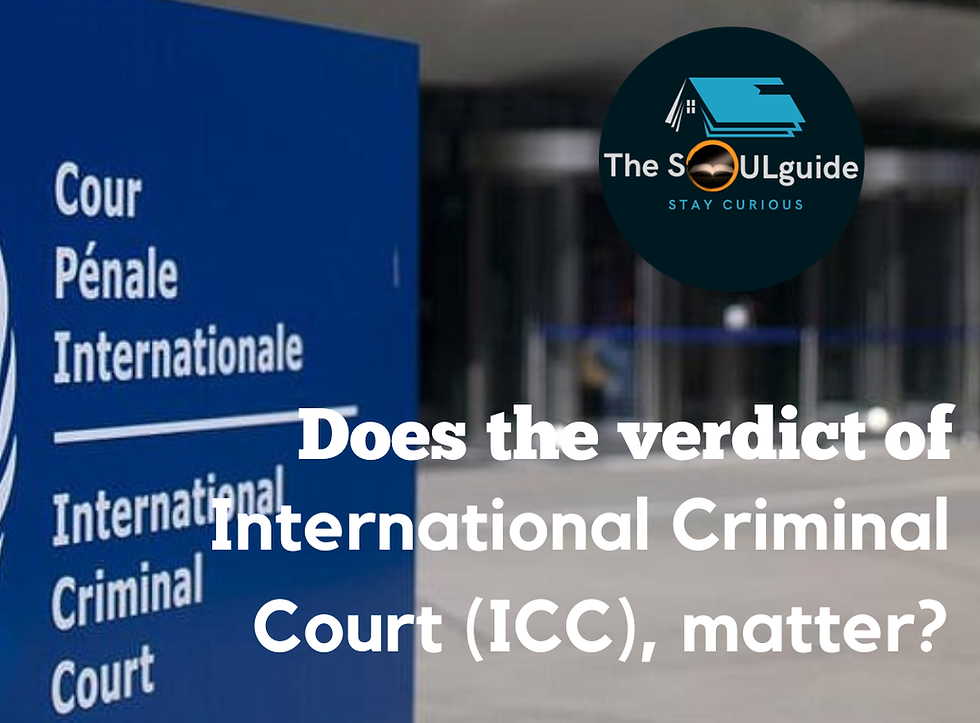What is FAKE News? How new rules plan to tackle it. How to avoid trap of fake news.
- TheSoulGuide

- Apr 8, 2023
- 3 min read
There's no doubt in todays digital revolution the most dangerous disease one could get is the FAKE news, which can have repercussions in the society that could be unhealthy for everyone even if some people know the reality. It matters bit less if you are correctly informed as long as larger society is under impression of Fake news. It could divide us, kill us mentally and physically and could deprive the growth of the nation. Whoever it is irrespective of political inclination, gender, age and education should go for correct information to have right concerns and Issues upfront rather than wrong ones. Recently government brought legislation that affects this topic. Lets know of it.

What is Fake news?
Fake news is false and misleading information that is presented as news. It is usually associated with politics, and this association can narrow the focus of the issue.
There's other term interchangeably used known as 'false information'. The term ‘false information’ is preferable as it can refer to a diverse range of misinformation and disinformation covering topics such as health, environmental and economics across all platforms and genres, while ‘fake news’ is more narrowly understood as political news stories.
False information is news, stories or hoaxes created to deliberately misinform or deceive readers. Usually, these stories are created to either influence people’s views, push a political agenda or cause confusion and can often be a profitable business for online publishers. False information can deceive people by looking like trusted websites or using similar names and web addresses to reputable news organisations.
How Government plans to tackle Fake news?
On 6 April 2023, the Ministry of Electronics and Information Technology (MeitY), Government of India, notified the Information Technology (Intermediary Guidelines and Digital Media Ethics Code) Amendment Rules, 2023.
The 2023 amendment confers power on MeitY to notify a fact check unit of the Central Government that will identify fake or false or misleading online content in respect to any business of the Central Government [Rule 3(1)(b)(v)]. Under Section 3, one of the due diligence requirement added is that social media intermediaries (such as Facebook, Twitter) and telecom service providers shall inform the user not to host, display, upload, modify, publish, transmit, store, update or share any information in respect of any business of the Central Government, that is identified as fake or false or misleading by such fact check unit.
Controversy behind this?
Violation of this rule can lead to the social media intermediaries losing their 'safe harbour' immunity.
The Internet Freedom Foundation (IFF), an Indian digital liberties organisation has issued a statement, that the unguided power bestowed on the fact check unit of the Government to identify fake online content can ultimately have a chilling effect on the freedom of speech and expression.
Editors Guild of India has also expressed concerns about this amendment. "EGI is disturbed by the amendments notified to the IT Rules 2021, by GoI_MeitY giving itself authority to constitute a “fact checking unit”, with sweeping powers to determine what is “fake or false” wrt “business of Central Government”, and order take down to intermediaries", it tweeted.
Government can hold accountable the media platform providers such as the Instagram, YouTube etc for not removing the content that the fact check unit of Government has flagged as Fake news, the onus will not be only on the publisher of content but also the platforms. Previously Government notified the rules for the social media platforms such as acting on a report from government within 24 hours and dispose it within 15 days and regarding the appointment of grievance officer who shall be stationed locally for looking at the complaints.
What should a normal man think about this?
Fake news is quite an unhealthy thing and in the era of WhatsApp and Facebook which people of all generations use are most exposed to fake news and they often believe what they read on WhatsApp irrespective of its authenticity which has led to trust deficits with the government. So everyone should verify the news before believing in it through other sources as well.
What you can do to avoid Fake news?
Directly go on the source of the information rather then believing what is written on social media.
Research on internet about it.
Dont believe everything you get on WhatsApp or news mobile apps.
Also try and differentiate between opinion of someone with the fact.
Stay alert and stay safe and stay tuned for more.




Comments